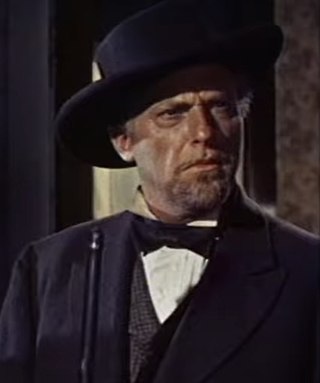Eva Ulrika Jonsson is a Swedish-British television presenter and model. She became known as a TV-am weather presenter, moved on to present the ITV show Gladiators, and as a team captain of the BBC Two show Shooting Stars.

Charita Bauer was an American soap opera radio and television actress.
Tord Alvar Quan Lidell was an English radio announcer and newsreader for the BBC and compere. He joined BBC Birmingham as chief announcer in 1932 before moving to London the following year. Lidell was made deputy chief announcer of the BBC in 1937 and announced important events such as Edward VIII's abdication and Britain's declaration of war with Germany in 1939.

Elizabeth Cowell (1912–1998) was a British broadcaster and television announcer.

Sir Martyn John Dudley Lewis is a Welsh television news presenter and broadcast journalist who anchored ITN news bulletins between 1978 and 1986 and BBC News television shows from 1986 to 1999. Lewis attended Dalriada School and Trinity College Dublin before working as a freelance correspondent for BBC Northern Ireland and Harlech Television (HTV). He joined ITN in 1970 and headed its Northern Bureau from 1971 to 1978. Between 1978 and 1986, Lewis was an anchor for ITN's News at 5.45 and half-hour News at Ten bulletins, creating the "And finally..." segment that features positive stories at the end of each News at Ten programme.

Robert Neill Dougall was an English broadcaster and ornithologist, mainly known as a newsreader and announcer. He started his career in the BBC's accounts department before moving on to become a radio announcer for the BBC Empire Service in 1934. Dougall covered the first three years of the Second World War for the corporation before resigning in 1942 to join the Royal Naval Volunteer Service.
Leslie Scott Falconer Mitchell was a British actor and broadcaster who was heard on newsreel soundtracks, radio, and television. Raised by his literary uncle William J. Locke and schooled at The King's School, Canterbury, and Chillon College in Switzerland, he began his career as a stage actor in London's West End after a time as a trainee stockbroker. Mitchell was the first voice heard on BBC Television on November 2, 1936, and also gave the inaugural announcement on Associated-Rediffusion, the first ITV network, on 22 September 1955. His voice was perhaps best known from his lengthy relationship with British Movietone News, for which he provided commentary on newsreels throughout the Second World War and into the mid-1970s. Mitchell was appointed a Freeman of the City of London and the Royal Television Society's first honorary member.
Sylvia Lucia Petronzio, better known as Sylvia Peters, was an English actress, and from 1947 to 1958 a continuity announcer and presenter for BBC Television. She introduced the Coronation of Queen Elizabeth II in 1953, and later advised the Queen as she prepared for her first televised Christmas Message in 1957.

Howard Alexander Petrie was an American radio, television, and film actor.
Andrew Gardner was an English newsreader on Independent Television News (ITN) in the United Kingdom from 1962 to 1977. He was also one of the original presenters of the half hour News at Ten bulletin when it began in July 1967. Gardner read the news on the regional Thames At 6 bulletin broadcast on the ITV London weekday franchise Thames Television from 1977 to his retirement in mid-1992.

Claudia Louise Morgan was an American film, television, and radio actress. She was best known for debuting the role of Vera Claythorne in the first Broadway production of Agatha Christie's Ten Little Indians and for her portrayal of Nora Charles on the 1940s radio series, The Adventures of the Thin Man.
Elizabeth Spender is a film and television actress known for her role in Brazil.
Jennifer Gaylor Rignold is an English television announcer and ballerina who was an on-screen BBC Children's TV continuity announcer for the BBC Television Service between 1949 and 1953.
Helen Mary Malcolm was one of the first two regular female announcers on BBC Television after World War II, and was a household name in the United Kingdom during the 1950s.
Truman Bradley was an actor and narrator in radio, television and film.

Jasmine Dotiwala is a British broadcaster, producer, and columnist. Dotiwala has worked with television and radio news platforms such as MTV, Channel 4 and BBC Radio London.

Alice Frost was an American actress. An inaugural member of Orson Welles's Mercury Theatre on radio and the stage, she later performed the role of Pamela North on the radio series Mr. and Mrs. North for nearly 10 years.

Elspeth Thexton Eric was an American actress in old-time radio, "usually cast as the other woman in soaps and serials".
Helen E. "Penny" Wilson is a British former windsurfer, who won multiple Windsurfing World Championships events. She competed at the 1992 Summer Olympics coming 6th and the 1996 Summer Olympics coming 7th.









